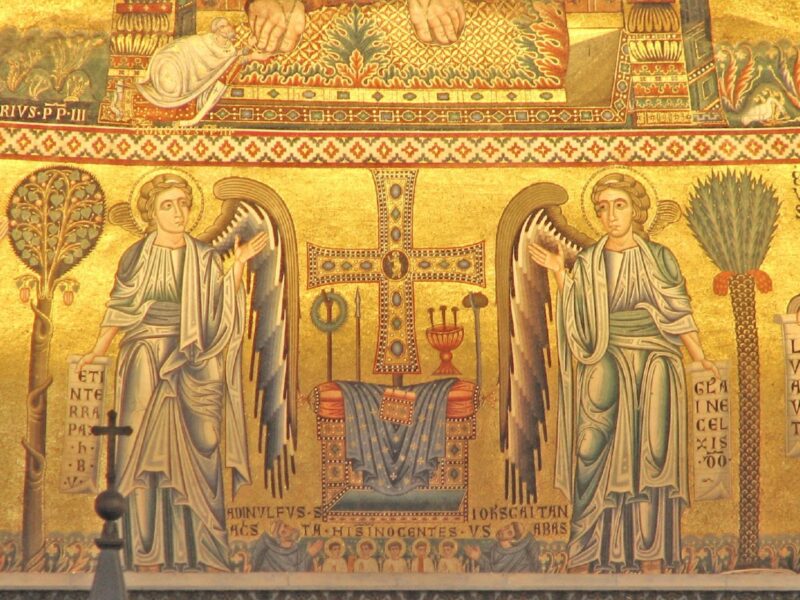
Don’t Just Hang Around
The immediate question that arises is regarding the oil and what it signifies. Some have proposed that the oil is our good deeds that come from living lives of faith. But what if the oil is the faith itself? Suddenly it seems that the whole parable makes sense. It is one thing to wait for the bridegroom, which is Christ.
But it is not enough to wait for the bridegroom with the others if the waiting is not accompanied by inner faith. God is not asking us only to ‘hang around’, he asks for our personal engagement as a response to his engagement towards us. The Church is the institution who has as her prime mission to announce the Gospel of the Lord, leading all people to faith by the sacraments and the liturgy, and through the lives of every Christian who witnesses to the mercy of God. The Church is a collective project. It is through the people of God that the presence of Christ is realised here on earth, as we wait for his second coming on the last day.
But at the same time the salvation of humanity is not brought about in a Marxist fashion. The work of salvation is not realised as though by the collective masses. It also involves the individual, with his or her personal project. Faith involves a personal encounter between Christ and me, a work of the Holy Spirit that gives me access to God’s Kingdom and the Father Himself.
One who in his time shed light on the theology of faith was Martin Luther. Even though some of Luther’s writing had a polemic sting against the Catholic Church, his focus on faith is an important reminder to us today about how central to our lives Christian faith is, and what a great gift it is.After having received the Sacraments of Baptism and Reconciliation, and as we are nourished by Christ’s own body and blood, we are meant to grow in intimate friendship with Jesus through our earthly pilgrimage. The nourishing oil that permits this growth is the Holy Spirit working in us in mysterious ways.
Luther formulated this beautifully as he wrote the third article of his Small Catechism:
I believe that I cannot come to my Lord Jesus Christ by my own intelligence or power. But the Holy Spirit called me by the Gospel, enlightened me with His gifts, made me holy and kept me in the true faith, just as He calls, gathers together, enlightens and makes holy the whole Church on earth and keeps it with Jesus in the one, true faith.
It doesn’t matter if it’s the wisest theologian or the criminal on the cross; we are all called to enter into relationship with our God and Saviour in an always deeper way. The Holy Spirit works in us, but God also calls for our cooperation. The loving relation God wishes for also involves our will and our whole being. We must seek God where he is to be found. He comes to us in the Eucharist and in the life of prayer of the Church. He reaches out to us in the Sacrament of Reconciliation. And he touches us through the love lived out in meeting with those we encounter and those who are around us.
If we want to ensure that our inner lamps are filled, we have to let us be touched by Him who longs for us. Saint Augustine described his way toward this personal encounter in his Confessions. Let us then meditate on how God unites with us as he engages all our senses in order to reach us:
Belatedly I loved thee, O Beauty so ancient and so new, belatedly I loved thee. For see, thou wast within and I was without, and I sought thee out there. Unlovely, I rushed heedlessly among the lovely things thou hast made. Thou wast with me, but I was not with thee. These things kept me far from thee; even though they were not at all unless they were in thee. Thou didst call and cry aloud, and didst force open my deafness. Thou didst gleam and shine, and didst chase away my blindness. Thou didst breathe fragrant odours and I drew in my breath; and now I pant for thee. I tasted, and now I hunger and thirst. Thou didst touch me, and I burned for thy peace. (Book 10, chapter 27, translated and edited by Albert C. Outler)


